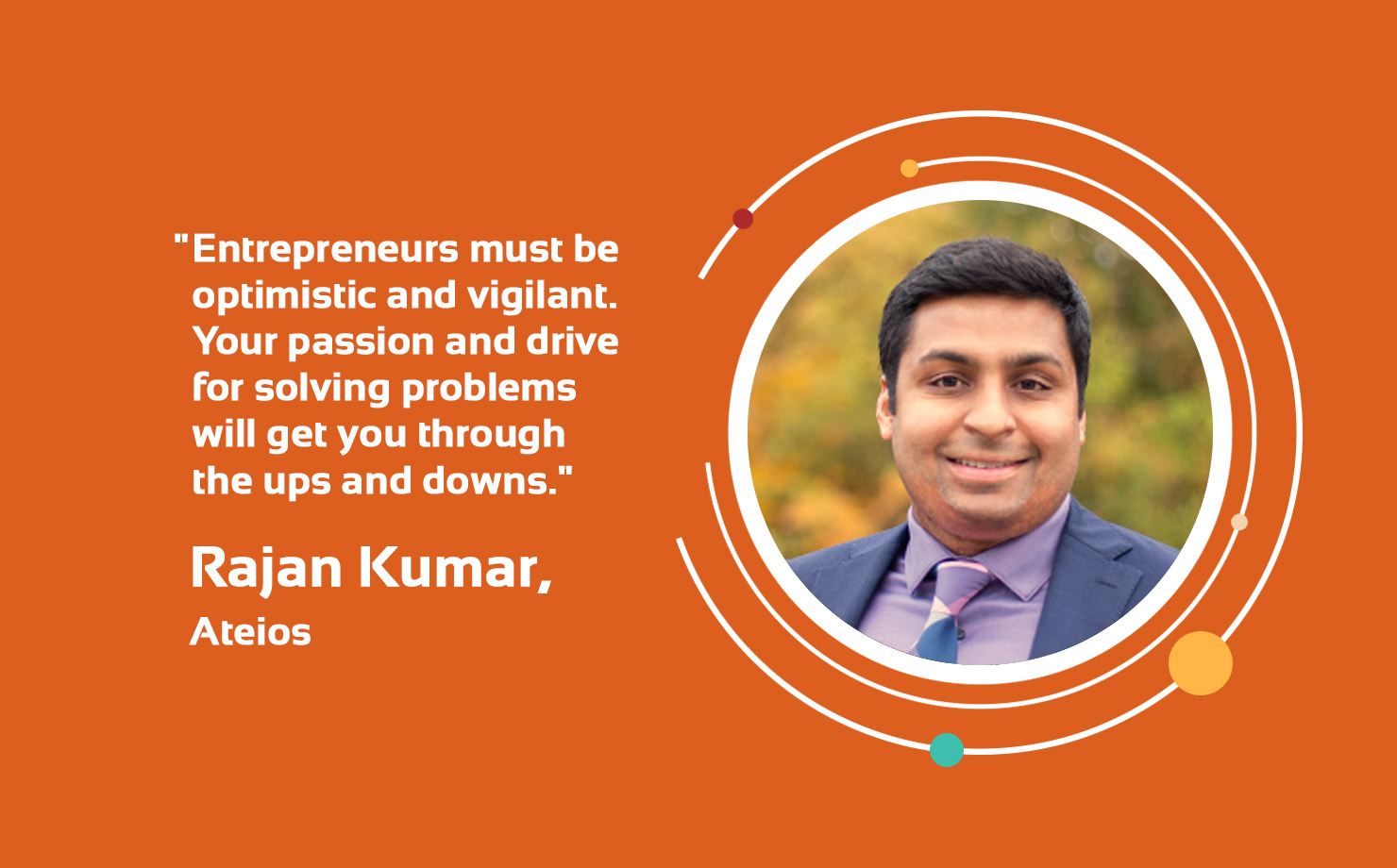
An innovator’s journey from idea to market can be challenging and complicated—but also rewarding. Each month we explore how inventor-entrepreneurs in our network have evolved since they started their journey. Our goal is to share key learnings and best practices with early-stage science and technology inventors embarking on a path of innovation and entrepreneurship. Our latest spotlight is with Rajan Kumar, co-founder of E-Team, Ateios. The design process for electronics like medical devices and patches, smart textiles, and soft robotics are often hindered by rigid and bulky battery forms. Ateios solves this problem by designing high-energy and incredibly flexible batteries based on case-by-case customer needs.
what challenges did you seek to solve with your innovation and why?
Ateios is developing a platform technology for battery manufacturing that is highly customizable, and can be rapidly integrated into flexible electronics. The technology is based on novel battery inks and coating processes that provide superior form-factor and customization. Ateios’s first customers are developers of thin-film and flexible electronics such as smart textiles, soft robotics, Internet-of-Things (IoT) devices, and medical/fitness-based wearable patches. These customers’ technologies are currently constrained by the form-factor and manufacturing limitations of existing coin cells. Ateios’s go-to-market strategy will focus on the development of flexible batteries for the growing medical patches market.
what have you learned along with your innovation and entrepreneurship journey?
I have learned that you need to be adaptable. Plans can change in just one meeting—you have to be prepared to pivot. Entrepreneurs must also be optimistic and vigilant. Your passion and drive for solving problems will get you through the ups and downs. I continue to move forward and grow from failures.
tell us how you’ve integrated environmentally-responsible practices into your innovation or process?
With the emergence of ubiquitous computing, society is going to face difficult challenges on the production and recycling of so many devices. While our current focus is building the best product to alleviate customer pain points, we are always thinking how to make our batteries recyclable and environmentally friendly. For example, we have been working with partners to upcycle materials from our waste products, and investigating new packaging materials that are easier to recycle.
how has support from VentureWell impacted your innovation and venture?
VentureWell was our very first funder and trusted teacher in the startup world. They helped us to get started. Their funding allowed for crucial equipment purchases that furthered our science and helped hone our skills. More importantly, they taught us the fundamentals of building a company. That has been instrumental to our continued success at the Rice Business Plan Competition, Techstars, and negotiating contracts with major Fortune 500 customers. After funding, they continued to guide us through some very important conversations with stakeholders that potentially decided the fate of the company. Without VentureWell’s help, I don’t think Ateios would exist today.
what’s next for you?
We want to continue to seek problems associated with battery design and manufacturing that our customers share, and building strong teams to discover the solutions. That is the model VentureWell has ingrained in us, and we continue to maintain that core belief.
The E-Team program supports dedicated science- and engineering-based student teams from across the nation in bringing their high-impact innovation out of the lab and into the market.